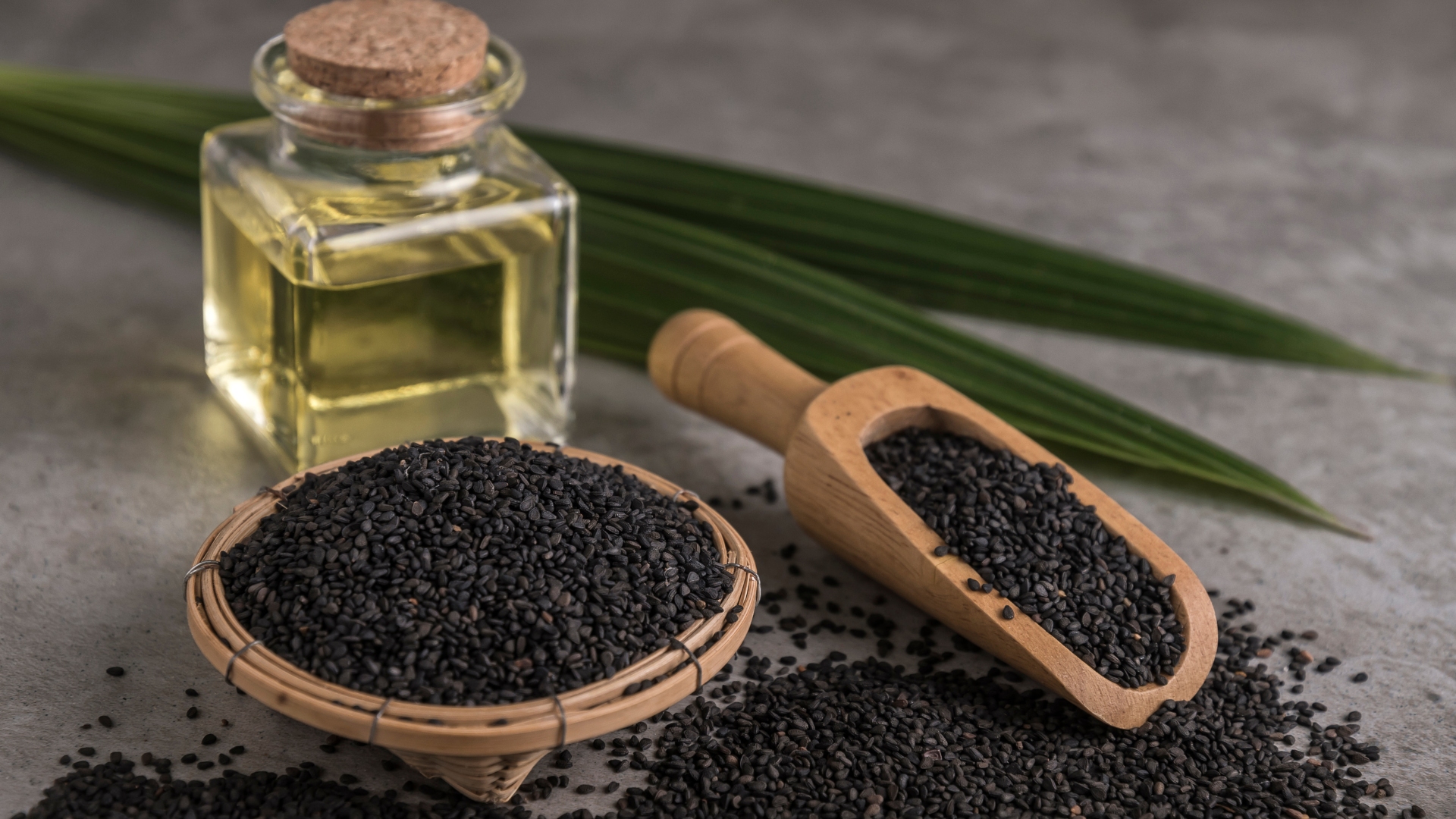
Black sesame seeds have been used for centuries in traditional medicine, cuisine, and cultural practices across Asia and the Middle East. With their distinct nutty flavor, rich color, and impressive nutrient profile, these tiny seeds are making a powerful comeback in modern wellness and food industries. This article explores their nutritional components, health benefits, and wide-ranging applications in the food industry.
Table of Contents
What Are Black Sesame Seeds?
Black sesame seeds are the unhulled version of white sesame seeds, retaining their outer husk. This husk contributes to their dark color and a slightly bitter, earthy taste compared to white sesame. They are harvested from the Sesamum indicum plant, which is one of the oldest oilseed crops known to humans.
Nutritional Value of Black Sesame Seeds
Black sesame seeds are small but incredibly nutrient-dense. Here's a look at their nutritional profile per 100 grams:
-
Calories: ~565 kcal
-
Protein: ~18 g
-
Fat: ~48 g (mainly healthy unsaturated fats)
-
Carbohydrates: ~25 g
-
Fiber: ~12 g
-
Calcium: ~975 mg
-
Iron: ~15 mg
-
Magnesium: ~350 mg
-
Phosphorus: ~600 mg
-
Zinc: ~7.8 mg
-
B Vitamins (especially B1, B3, B6)
-
Vitamin E
-
Antioxidants (Sesamin, Sesamol, and Sesamolin)
This makes them particularly valuable for vegetarians, vegans, and those seeking plant-based sources of essential nutrients.
Health Benefits of Black Sesame Seeds
1. Rich Source of Antioxidants
Black sesame seeds contain unique compounds like sesamin and sesamol, which exhibit powerful antioxidant properties. These help neutralize free radicals, reducing oxidative stress and slowing down aging and inflammation.
2. Bone Health Support
Their high calcium, magnesium, and phosphorus content makes them excellent for maintaining strong bones and preventing conditions like osteoporosis, especially in postmenopausal women.
3. Heart Health
The healthy fats (omega-6 fatty acids and polyunsaturated fats) and plant lignans found in black sesame seeds help lower bad cholesterol (LDL) and improve arterial function, contributing to better cardiovascular health.
4. Blood Pressure Regulation
Magnesium and sesamin in black sesame seeds are known to aid in lowering blood pressure, making them beneficial for people with hypertension.
5. Improved Digestion
The fiber in black sesame seeds supports gut health by aiding digestion, regulating bowel movements, and feeding healthy gut bacteria.
6. Hormonal Balance
Sesamin has been shown to support hormonal regulation by impacting estrogen metabolism. This can be particularly beneficial for women during PMS or menopause.
7. Liver Detoxification
Traditional Chinese medicine often uses black sesame seeds for liver nourishment and detox. Modern studies suggest they may help protect the liver from oxidative damage.
8. Hair and Skin Health
Due to their high levels of zinc, iron, and vitamin E, black sesame seeds are believed to improve hair thickness, prevent premature greying, and promote radiant skin.
Food Industrial Applications
Black sesame seeds are increasingly used across a variety of sectors in the food industry due to their unique flavor, color, and nutritional benefits.
1. Bakery Products
Black sesame seeds are added to breads, cookies, crackers, and pastries for texture, flavor, and aesthetic appeal.
2. Confectionery
They are commonly used in energy bars, traditional sweets (like sesame laddoos), and health-focused chocolates and nut butters.
3. Oil Extraction
Black sesame seed oil is darker and more aromatic than white sesame oil and is valued both for cooking and therapeutic uses (especially in Ayurveda).
4. Beverage Industry
Sesame-based plant milk is gaining traction as a non-dairy alternative, offering a rich, nutty flavor along with calcium and iron content.
5. Functional Foods and Supplements
Ground black sesame is used in protein powders, health mixes, and supplements targeted toward bone health, immunity, and digestion.
6. Garnishing and Seasoning
In Asian cuisines, especially Japanese and Korean dishes, black sesame is widely used as a garnish on rice, noodles, and salads.
Cultural and Traditional Uses
-
Ayurveda: Black sesame is considered warming and nourishing, used for vata balance, bone strength, and joint health.
-
Chinese Medicine: Used for liver and kidney support, promoting longevity and vitality.
-
Festivals & Rituals: Often offered in Hindu rituals and festivals like Makar Sankranti and Shradh ceremonies.
How to Incorporate Black Sesame Seeds Into Your Diet
-
Sprinkle on salads, oatmeal, or smoothie bowls
-
Mix into yogurt or nut butter
-
Add to baked goods like muffins or bread
-
Use as a coating for sushi rolls or energy bites
-
Blend into dips, tahini, or dressings
-
Enjoy as traditional sweets like sesame chikki or laddoos
Precautions and Side Effects
While black sesame seeds are generally safe, overconsumption can cause digestive discomfort due to high fiber. People with seed allergies or those on certain medications (like blood thinners) should consult their doctor before regular use.
Black sesame seeds are not just a flavorful ingredient — they are a powerhouse of nutrition, offering a wide range of health benefits and culinary applications. From supporting bone health and digestion to playing a role in modern food innovation, these ancient seeds remain highly relevant in today’s wellness-driven world. Incorporating black sesame seeds into your diet is a small but powerful step toward better health.


